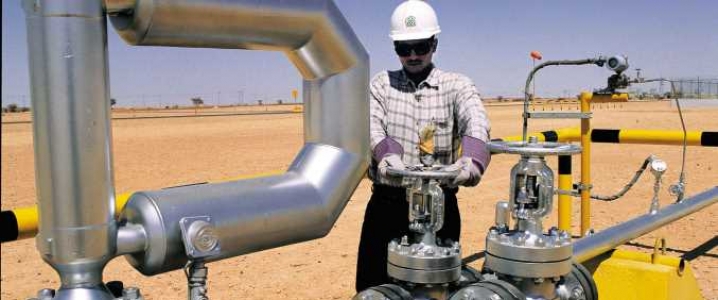As soon as next month, OPEC may decide to reverse some of the production cuts in place since the beginning of 2017, to respond to supply concerns over plummeting Venezuelan production and the potential loss of some of Iran’s oil exports due to the return of U.S. sanctions, sources at OPEC and within the industry told Reuters.
OPEC members from the Persian Gulf are leading early talks on when the cartel could start lifting production to “cool” the oil prices after Brent Crude hit $80 a barrel last week, the sources told Reuters on Tuesday. The initial talks are also focused on how much volume each OPEC member could add, according to the sources.
“All options are on the table,” and a possible decision to ease the cuts could be made next month at the Vienna meeting, one oil source from a Gulf nation told Reuters.
According to a source at OPEC, one of the options that the group is discussing is indeed deciding in June to increase supply.
Sources also told Reuters that concerns over the high oil prices raised by the United States also prompted OPEC to launch internal talks.
Last month, U.S. President Donald Trump tweeted that oil prices are “artificially very high” and “will not be accepted”, slamming OPEC for manipulating the price of oil.
Last week, when Brent touched $80 a barrel, Khalid al-Falih, the Energy Minister of OPEC’s largest producer Saudi Arabia, said on Twitter that he had spoken on the phone with a number of fellow ministers, including those of the UAE, USA, Russia, India, and Korea, “to coordinate global action to ease oil market anxiety.”
On Wednesday, oil prices were down early in the morning, after the American Petroleum Institute (API) reported on Tuesday a build in gasoline inventories and ahead of EIA’s weekly inventory report due out at 10:30 a.m. EST. After the EIA released its weekly report showing a surprise crude oil inventory build, both Brent and WTI benchmarks fell further. Related: Crude, Gasoline Prices Slip On Inventory Build
According to Ole Hansen, Head of Commodity Strategy at Saxo Bank, a buying fatigue is emerging in crude oil, as “Brent crude oil has been struggling to break above $80/b despite a deteriorating outlook for production in Venezuela and the not yet quantifiable impact of US sanctions on Iran.”
“A ten-dollar rally since early April could indicate that tighter supply may begin to be priced in,” Hansen wrote on Wednesday, adding that “Geopolitical risks are likely to keep a relatively solid floor under the market. But the recent price behaviour could indicate the market is getting ready to consolidate with $77.50/b being the first level of support.”
ADVERTISEMENT
By Tsvetana Paraskova for Oilprice.com
More Top Reads From Oilprice.com:
- Dubai To Become Global Leader In Solar Energy
- Iran Tensions Send Oil Spiking Again
- EVs Could Erase 7 Million Bpd In Demand



















The OPEC/non-OPEC production cut agreement has done a sterling job in eliminating the huge glut in the global oil market. Still, the agreement is here to stay well into the future and it will be transformed into a permanent mechanism which can react quickly to any extreme tightening in the global or market or any significant build in global crude oil and gasoline inventories.
What OPEC will not do is to be persuaded by false pretences that the market is getting very tight because of declining Venezuelan oil production and the assumption that the forthcoming US sanctions on Iran could lead to a loss of 400,000 – 500,000 barrels a day (b/d) of Iranian oil exports. Both of these developments have already been factored in by the global oil market.
Still, if there is a worry about Venezuela’s declining oil production, then may be US oil production which the EIA keeps telling us that it has reached 10.7 mbd and is on the rise could offset the Venezuelan decline.
As for Iran, I have been on record saying that Iran will not lose a single barrel of oil exports as a result of the forthcoming US sanctions. Moreover, Iran will be using the petro-yuan for payment for its oil exports to China, the euro for its exports to the EU and barter trade with Russia, India and Turkey thus bypassing the petrodollar altogether and nullifying the impact of the sanctions.
The Saudi oil minister Khalid al-Falih is an astute reader of the global oil market. He will try to sooth the nervousness in the market by reassuring statements. But his aim is to take the oil price to at least $100. He is not going to be persuaded by false pretences to lift OPEC or Saudi Production until he achieves his goal.
Dr Mamdouh G Salameh
International Oil Economist
Visiting Professor of Energy Economics at ESCP Europe Business School, London
I would say a factor favoring a production increase is that a return of sanctions imposed on Iran would be rewarded by increased production from countries that see Iran as a threat. In this regard, geopolitical pressures point toward an increase in supply to make up for other OPEC members production being hampered.